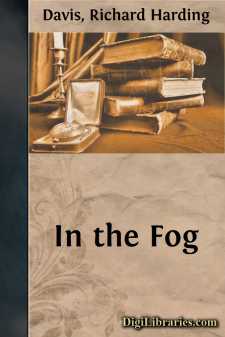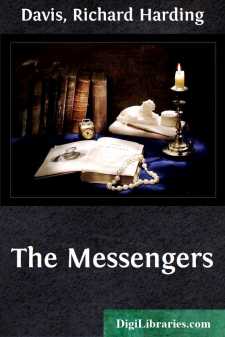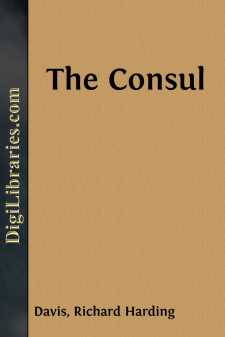Categories
- Antiques & Collectibles 13
- Architecture 36
- Art 48
- Bibles 22
- Biography & Autobiography 813
- Body, Mind & Spirit 142
- Business & Economics 28
- Children's Books 14
- Children's Fiction 11
- Computers 4
- Cooking 94
- Crafts & Hobbies 4
- Drama 346
- Education 46
- Family & Relationships 57
- Fiction 11829
- Games 19
- Gardening 17
- Health & Fitness 34
- History 1377
- House & Home 1
- Humor 147
- Juvenile Fiction 1873
- Juvenile Nonfiction 202
- Language Arts & Disciplines 88
- Law 16
- Literary Collections 686
- Literary Criticism 179
- Mathematics 13
- Medical 41
- Music 40
- Nature 179
- Non-Classifiable 1768
- Performing Arts 7
- Periodicals 1453
- Philosophy 64
- Photography 2
- Poetry 896
- Political Science 203
- Psychology 42
- Reference 154
- Religion 513
- Science 126
- Self-Help 84
- Social Science 81
- Sports & Recreation 34
- Study Aids 3
- Technology & Engineering 59
- Transportation 23
- Travel 463
- True Crime 29
The Lost House
Description:
Excerpt
I
It was a dull day at the chancellery. His Excellency the American Ambassador was absent in Scotland, unveiling a bust to Bobby Burns, paid for by the numerous lovers of that poet in Pittsburg; the First Secretary was absent at Aldershot, observing a sham battle; the Military Attache was absent at the Crystal Palace, watching a foot-ball match; the Naval Attache was absent at the Duke of Deptford's, shooting pheasants; and at the Embassy, the Second Secretary, having lunched leisurely at the Artz, was now alone, but prepared with his life to protect American interests. Accordingly, on the condition that the story should not be traced back to him, he had just confided a State secret to his young friend, Austin Ford, the London correspondent of the New York REPUBLIC.
"I will cable it," Ford reassured him, "as coming from a Hungarian diplomat, temporarily residing in Bloomsbury, while en route to his post in Patagonia. In that shape, not even your astute chief will suspect its real source. And further from the truth than that I refuse to go."
"What I dropped in to ask," he continued, "is whether the English are going to send over a polo team next summer to try to bring back the cup?"
"I've several other items of interest," suggested the Secretary.
"The week-end parties to which you have been invited," Ford objected, "can wait. Tell me first what chance there is for an international polo match."
"Polo," sententiously began the Second Secretary, who himself was a crackerjack at the game, "is a proposition of ponies! Men can be trained for polo. But polo ponies must be born. Without good ponies——"
James, the page who guarded the outer walls, of the chancellery, appeared in the doorway.
"Please, Sir, a person," he announced, "with a note for the Ambassador, he says it's important."
"Tell him to leave it," said the Secretary. "Polo ponies——"
"Yes, Sir," interrupted the page. "But 'e won't leave it, not unless he keeps the 'arf-crown."
"For Heaven's sake!" protested the Second Secretary, "then let him keep the half-crown. When I say polo ponies, I don't mean——"
James, although alarmed at his own temerity, refused to accept the dismissal. "But, please, Sir," he begged; "I think the 'arf-crown is for the Ambassador."
The astonished diplomat gazed with open eyes.
"You think—WHAT!" he exclaimed.
James, upon the defensive, explained breathlessly.
"Because, Sir," he stammered, "it was INSIDE the note when it was thrown out of the window."
Ford had been sprawling in a soft leather chair in front of the open fire. With the privilege of an old school-fellow and college classmate, he had been jabbing the soft coal with his walking-stick, causing it to burst into tiny flames. His cigarette drooped from his lips, his hat was cocked over one eye; he was a picture of indifference, merging upon boredom. But at the words of the boy his attitude both of mind and body underwent an instant change. It was as though he were an actor, and the words "thrown from the window" were his cue....












